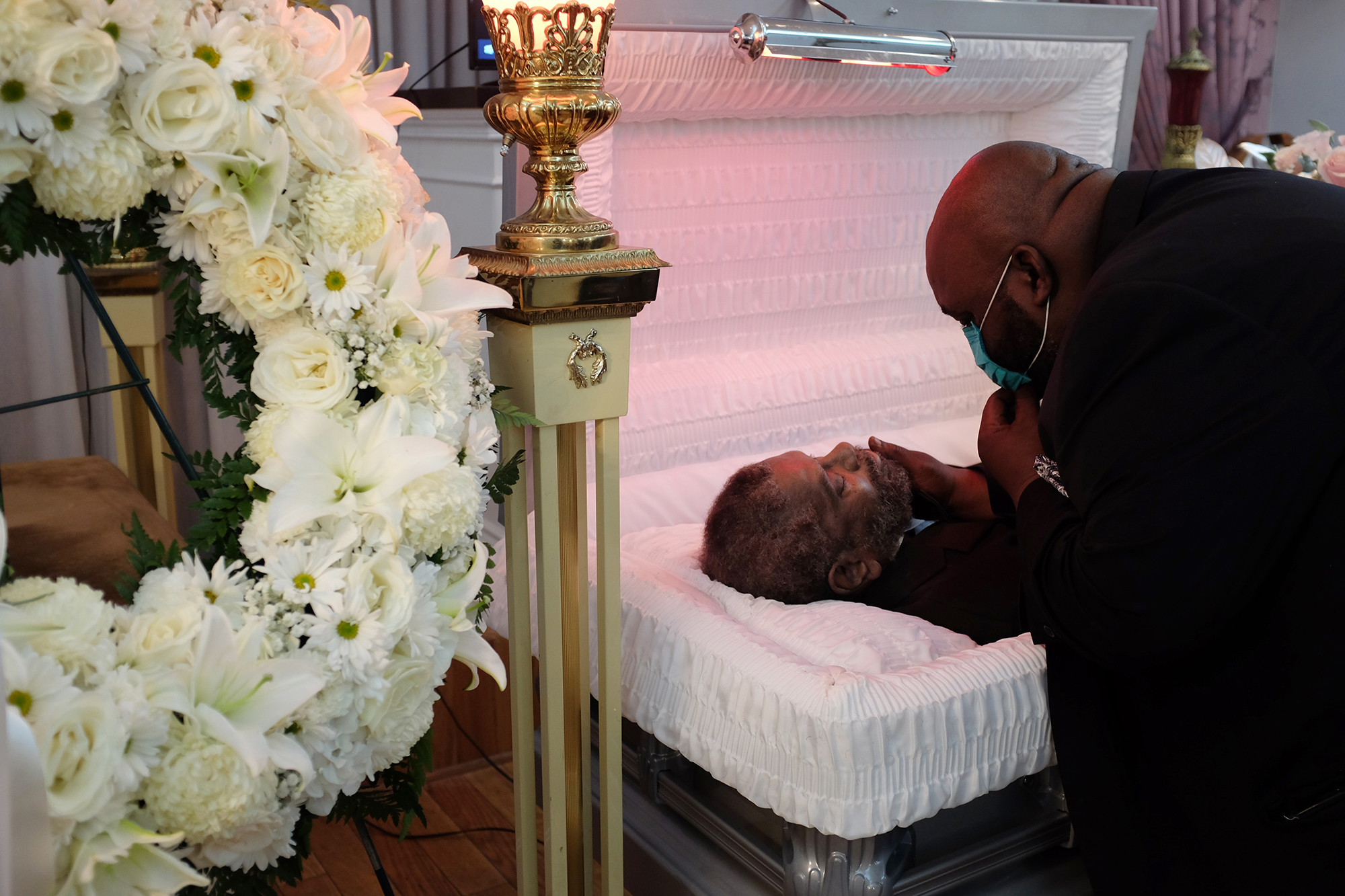
ELEGY
The US is at a moment of reckoning. My project, called “ELEGY,” is a short documentary film presenting the collective grief that people around the world are feeling. The project will invoke a response to the pandemic, and the issue of race in this country. The film is about the pain of what humanity has suffered but presents the opportunity for transformation and collective community.
The film begins as Isaiah Owens returns to work for the first time after being infected with COVID-19. There are more than 100 bodies waiting for him upon his return. Mr. Owens, 69 years old. Known as “Boogie” to his friends, he has been beautifying corpses at his funeral home for more than 30 years, performing over 25,000 burials in Harlem. On the frontlines of the coronavirus pandemic healthcare workers care for the living, but another frontline care for the dead. Their call of duty will last much longer. Mr. Owens’ funeral home, usually staffed by a team of 10 has been reduced to a team of three; 2 employees have been lost to the virus. Grief pulses through Mr. Owens’ personal life as well, he has already lost 50 friends to the virus.
A few blocks away, Dedric “Beloved” Hammond pulls up the gate and opens the doors to a food pantry, he and a few other “Credible Messengers” have started to meet the needs of some of the most vulnerable people living in West Harlem. These Credible Messengers are sons and daughters of Harlem who have overcome their former involvement in street crime, gangs, and incarceration to emerge as transformed mentors for young people. Many of these men, once seen as terrorists and savages, now are embraced with true humanity — seen as interwoven solutions to the seemingly intractable issues facing the neighborhood.
At this moment, the food pantry is serving close to 600 families per week. The pantry distributes food, personal protective equipment, and information about COVID-19. One can feel desperation and hope, as they hand out sustenance, protection, and vitally important information. The same so-called “at risk youth” who receive hot meals through the pantry are also some of its most active volunteers. They are driven by the global pandemic to transform their community and eagerly step into the role of helper. The youth signal hope and transformation in a community wracked with death and grief.
Both Beloved and Mr. Owens wear many hats. The community trusts them and they trust the community. They can — and do — address the immediate crisis in the black community and help people about how to heal, grow, and survive. These men, in both small and enormous ways, are addressing racism. They are the hope for the future — local social change catalysts who will knit the social safety net back together by hand. They are largely unsung for their efforts by the world outside.
Using Mr. Owens and Beloved as a lens, ELEGY will follow their journey over a short time span as they help individuals, families, and their community transform. The film will also celebrate and underscore the strength, renewal, connection, and joy of and in Harlem. Using Mr. Owens’ funeral home to explore the disproportionate impact of COVID-19 on the black community, we spend time exploring the lives of those lost to the pandemic and the impacts felt by their families and the community. The project examines the factors driving these racial disparities while highlighting what can be done to remedy them by gracefully walking in the shoes of people committed to reimagining a new world. This is a portrait that defines the times we are living in.
